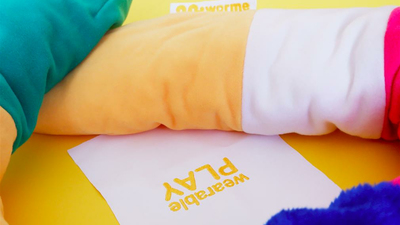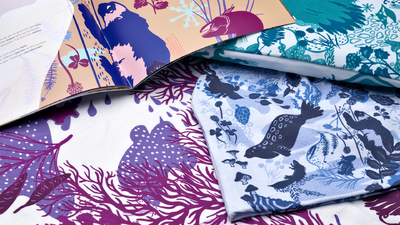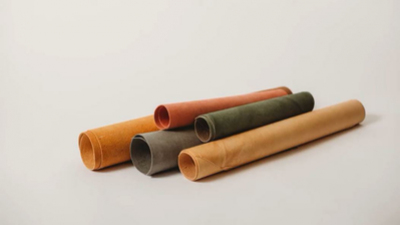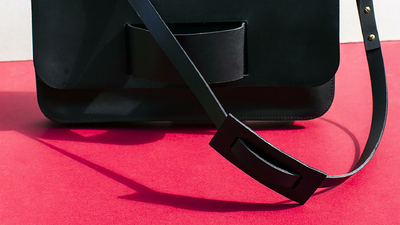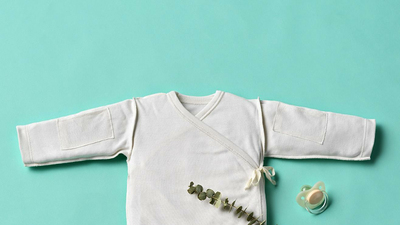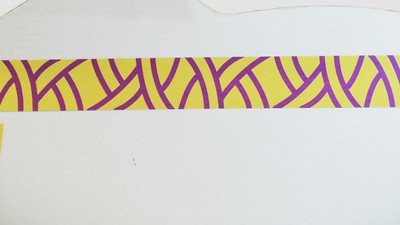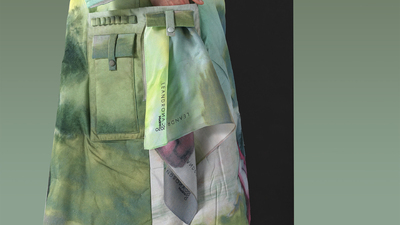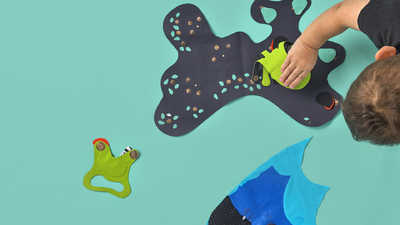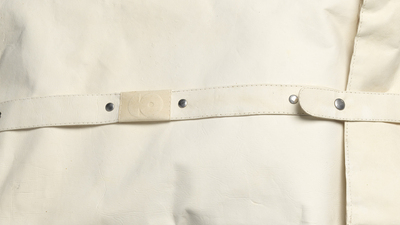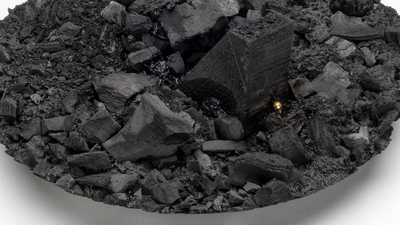Planned Space Pooling
The idea
4 years ago, I started my own label with Hand Knitted sweaters, Survival of the Fashionest, adopting 250 grandmothers in Bulgaria with an incredible amount of Hand-Knitting heritage. My mission is to bring this old craft into a modern daylight, so it will survive in the current, machine focused, times. While visiting Bulgaria for the second time, overseeing the first production of sweaters, I brought Loret Karman with me to assist and bring in some of the future – YouTube-generation – tips and tricks for the classical schooled Bulgarian craftswomen. It was here that I saw and realized how advanced and difficult it is to knit an intarsia sweater – a technique where for every colour a different ball of wool is used - with the amount of colours that I use in my designs is even harder. Coming home after a long day of knitting, I sat with Loret drinking a beer and dreamt out loud about this idea of 1 long thread with the image of a sweater already IN it. So, the magic would reveal itself by every stitch, instead of having all the different balls hanging on your knitwork.
The birth of the project
Starting from this dream, the project was eventually born. We realized it could potentially solve many issues. Like for example the amount of yarn waste, reducing time consumption for production and give total freedom in creativity to designers. If we could produce only the material that is necessary, it would in combination with the fact that knitting itself is the most sustainable way of producing fashion (all material goes into the product), a potential answer to the claim fashion production has on our eco systems. It would also give an answer in the upcoming trend that fashion needs to be extremely quick and new ALL the time and be exclusive. if we could make a yarn with total freedom in colours and artwork, we do not need to produce massive amounts of yarns in different colours, but exactly the amount that is needed for production.
It sounded all very idealistic and we could not believe we were the only or first ones to come up with the idea. We knew about some techniques developed into the same direction, space dye, but these are still limited. After doing more intense research we figured out there was not really any other known research done to this technique so far. Therefor we decided to pitch the project for the WORTH project as Planned Space Pooling.
The creative process
Dream big! Fascinated with the potentials of the technique we dreamed off to industrially produced yarns for robot knitting machines that can produce garments in 1 go directly on the machine. Made-to-measure. how fantastic would it be to have a 3D garment 'printer' where you can not only decide shape, but also plan your own artwork in it.
However, to realize a dream you need to make the first steps. We searched for Textile Laboratories to experiment directly with computer powered dyeing machines but found out it is hard to convince people with just dreams. We decided to take it into our own hands and investigate different hand dyeing techniques on various materials, trying to control the colouring and bleeding on the thread. The process went terribly slow because all steps are being done by hand. This was both a disadvantage as an advantage. since you are on top of all the little steps in the process. After intensive research and many hours of work, we found the best combination.
It took 58 hours of painting every single one of the 8.964 stitches needed for a proof of concept sample, sized 35x33cm; 157 meter of yarn that took 50 hours to knit together. But by every stitch knitted, the magic of the artwork revealed itself more and more. Making it worth every minute spend on it and appreciate the result, knowing the effort it took every step on the way.
The collaboration
WORTH-ing together has been key during the project, not only for the project itself, but we also met great professionals that could look at our project and give critical feedback. It made the project what it is, a combined force of people with each their own specific expertise. We learned a lot about each other and from each other, plus about working together in general and for a fund organization. The opportunity this project gave us, has led to many more ideas and projects we would like to explore together. It also gave us new friends and colleagues that we will see for the rest of our lives from all over Europe.
We set up our own group of external experts around us, to give direct and specific feedback, without whom the project would not have resulted in the current outcome. Also, with these people we still have regular contact and will work again in the future.
The future
As we have reached a proof-of-concept stage, we dream further on our initial dream, since the outcome is positive. We imagine the project continuing a professional, upscaled, mechanical size. This would mean a big investment into new technologies. We experience a far different approach to what we are used to work within in the 'handmade' world, where all are excited about a project and would love to contribute and invest time in – making it a combined effort. We have contacted a company that expresses a wish to develop their 'embroidery yarn printing machine' suitable for knitting, but the conversations are very formal and not very inviting. It seems to be all about money. Another Dutch textile research company showed great interest and would love to develop the project further if we find funding. So, this is what we will focus on for the near future, trying to raise a budget to develop the project further.
The message
Collaborating with a partner will open new ways of looking at your own work and skills. It is an investment in each other and your future. Give each other and yourself space to reflect and do not only focus on the questions that are in front of you. The best things come in unexpected moments and unexpected ways. Therefore collaborating has so much potential!







